Lev S. Vygotsky Quotes & Sayings
Enjoy the top 29 famous quotes, sayings and quotations by Lev S. Vygotsky.
Famous Quotes By Lev S. Vygotsky

Psychology teaches us at every step that though two types of activity can have the same external manifestation, whether in origin or essence, their nature may differ most profoundly. — Lev S. Vygotsky
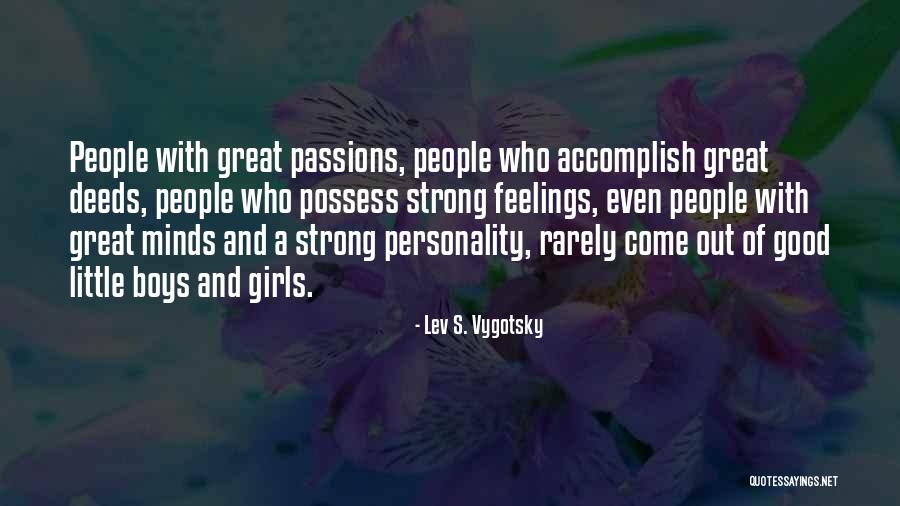
People with great passions, people who accomplish great deeds, people who possess strong feelings, even people with great minds and a strong personality, rarely come out of good little boys and girls. — Lev S. Vygotsky

A word devoid of thought is a dead thing, and a thought unembodied in words remains a shadow. — Lev S. Vygotsky
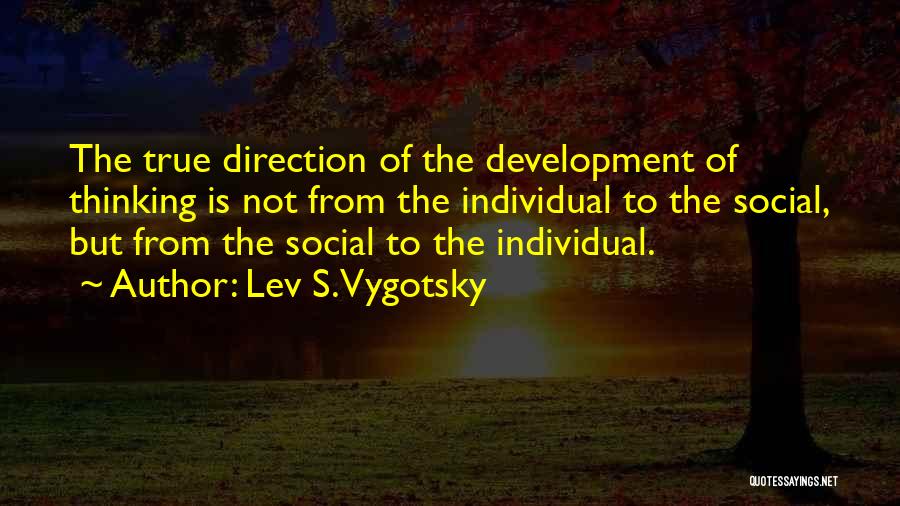
The true direction of the development of thinking is not from the individual to the social, but from the social to the individual. — Lev S. Vygotsky
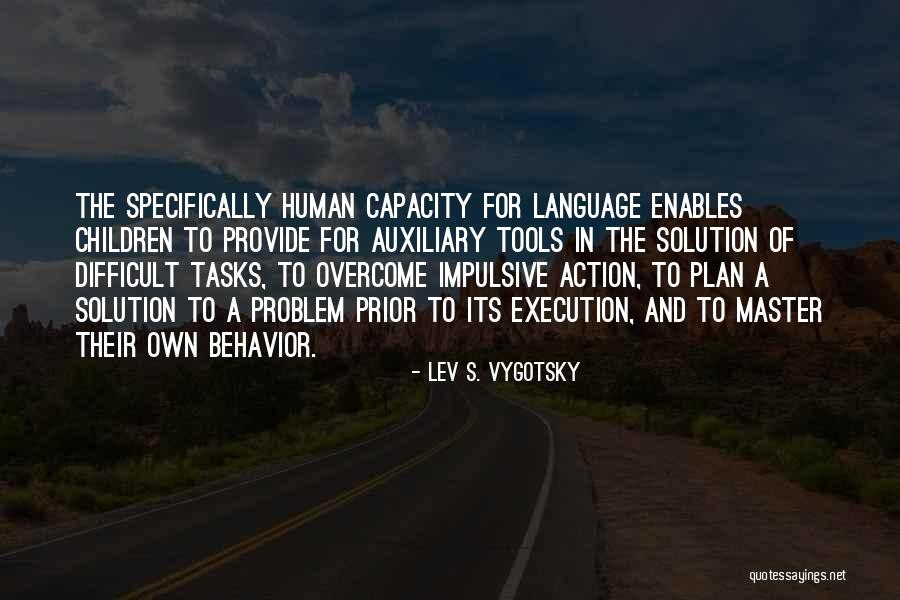
The specifically human capacity for language enables children to provide for auxiliary tools in the solution of difficult tasks, to overcome impulsive action, to plan a solution to a problem prior to its execution, and to master their own behavior. — Lev S. Vygotsky
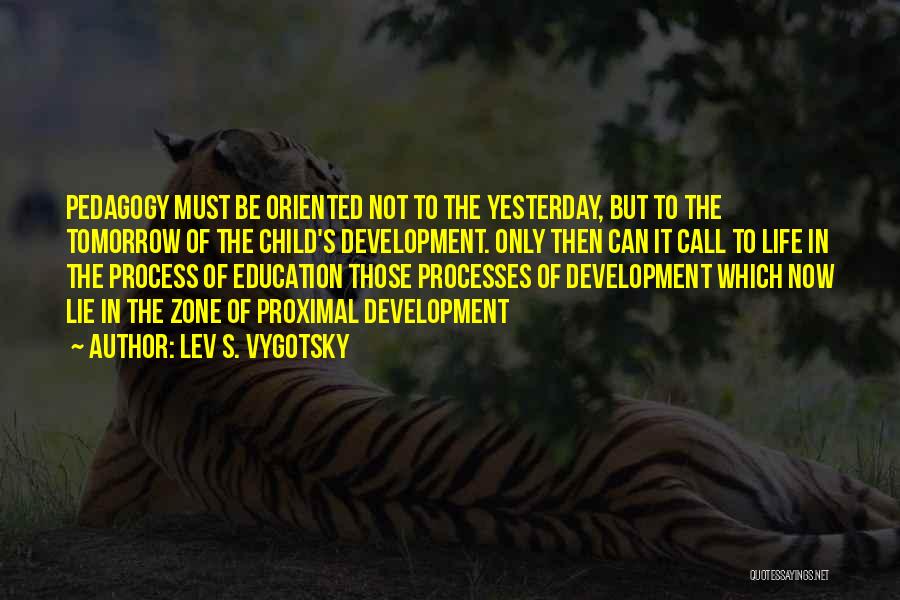
Pedagogy must be oriented not to the yesterday, but to the tomorrow of the child's development. Only then can it call to life in the process of education those processes of development which now lie in the zone of proximal development — Lev S. Vygotsky
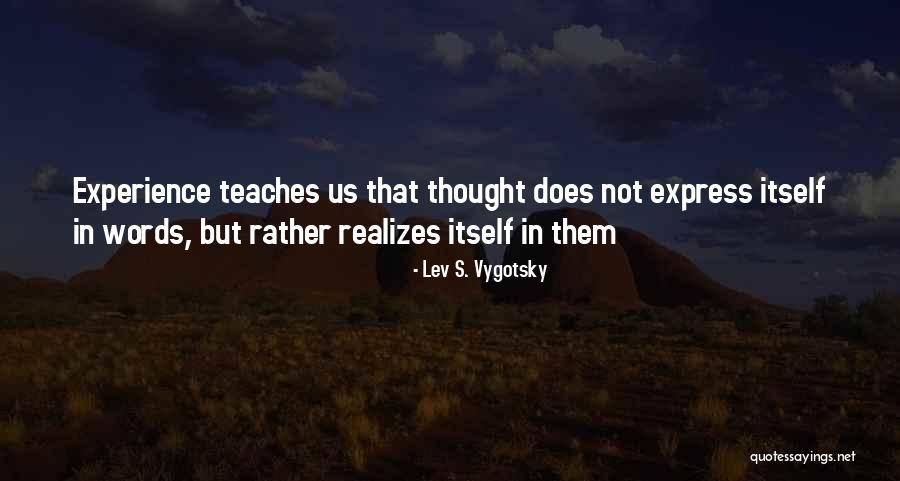
Experience teaches us that thought does not express itself in words, but rather realizes itself in them — Lev S. Vygotsky
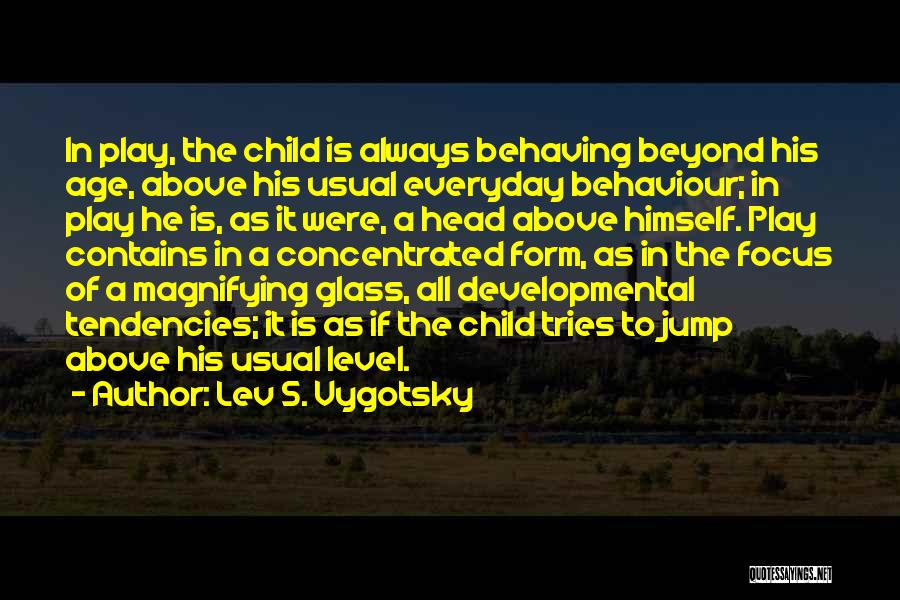
In play, the child is always behaving beyond his age, above his usual everyday behaviour; in play he is, as it were, a head above himself. Play contains in a concentrated form, as in the focus of a magnifying glass, all developmental tendencies; it is as if the child tries to jump above his usual level. — Lev S. Vygotsky
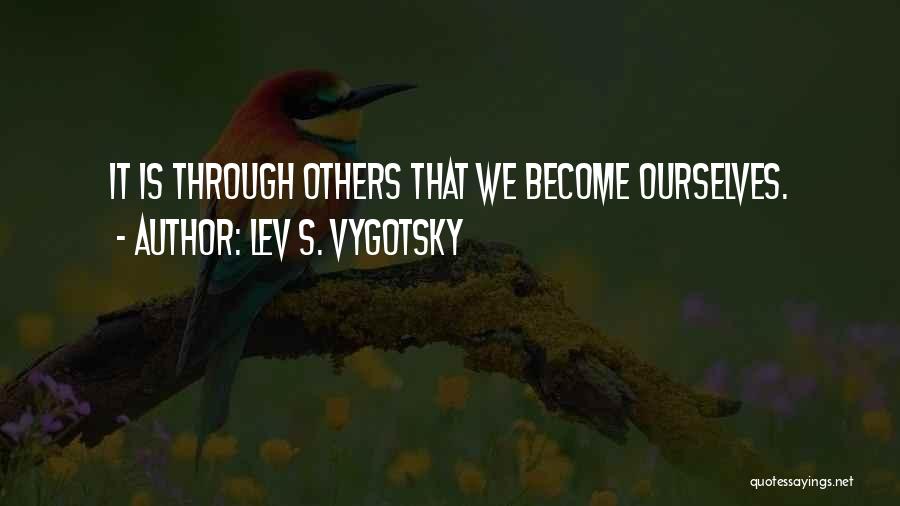
It is through others that we become ourselves. — Lev S. Vygotsky
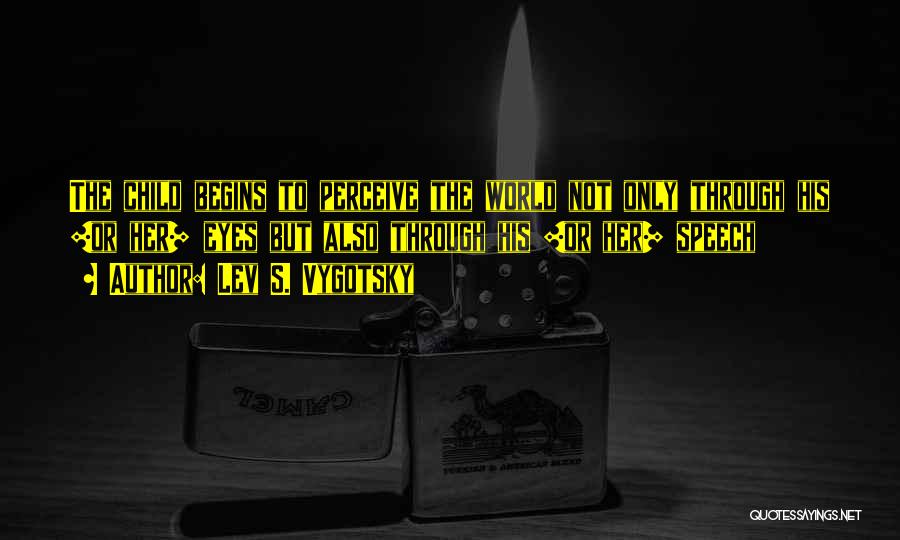
The child begins to perceive the world not only through his [or her] eyes but also through his [or her] speech — Lev S. Vygotsky
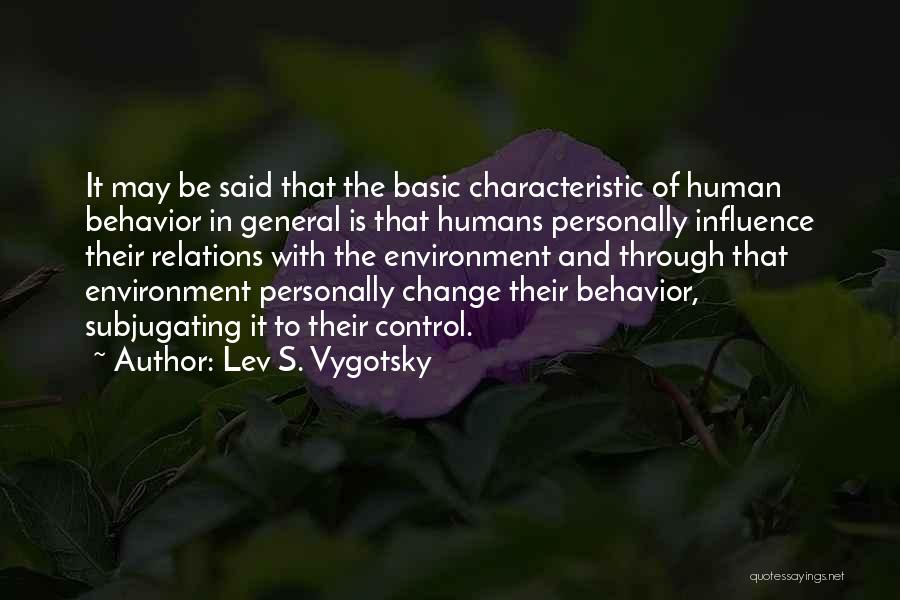
It may be said that the basic characteristic of human behavior in general is that humans personally influence their relations with the environment and through that environment personally change their behavior, subjugating it to their control. — Lev S. Vygotsky
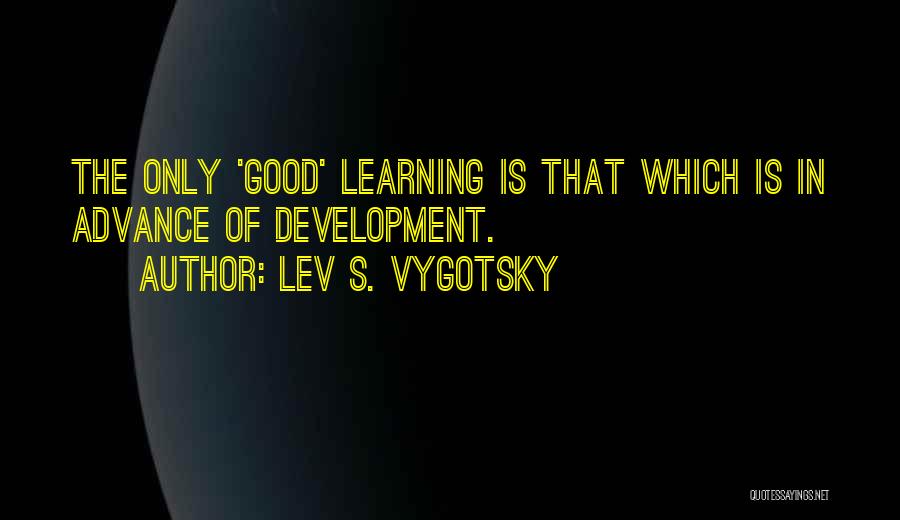
The only 'good' learning is that which is in advance of development. — Lev S. Vygotsky

Language is the tool of the tools — Lev S. Vygotsky
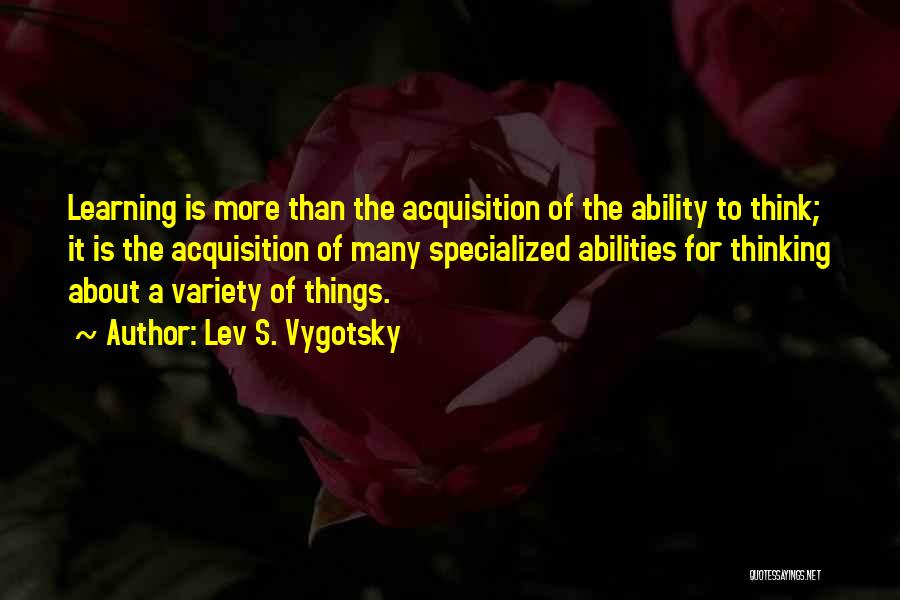
Learning is more than the acquisition of the ability to think; it is the acquisition of many specialized abilities for thinking about a variety of things. — Lev S. Vygotsky
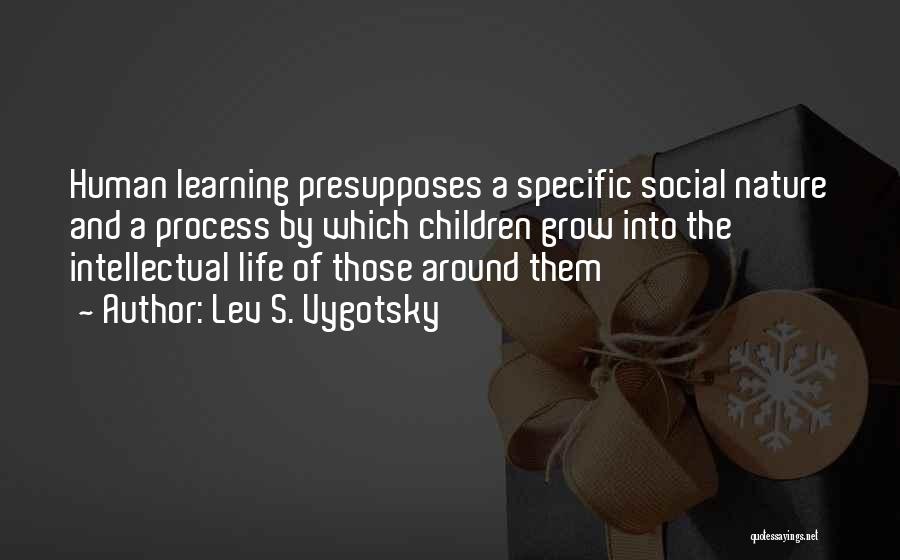
Human learning presupposes a specific social nature and a process by which children grow into the intellectual life of those around them — Lev S. Vygotsky
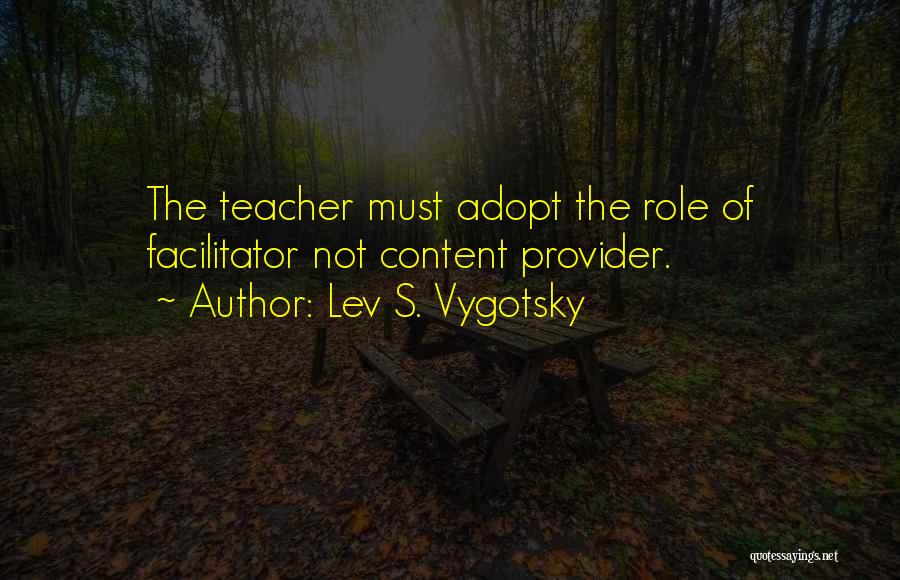
The teacher must adopt the role of facilitator not content provider. — Lev S. Vygotsky
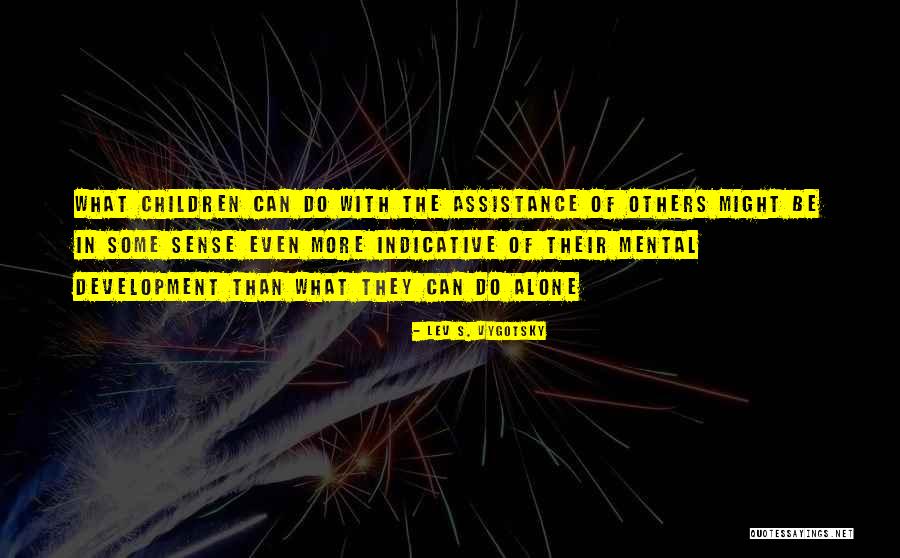
What children can do with the assistance of others might be in some sense even more indicative of their mental development than what they can do alone — Lev S. Vygotsky
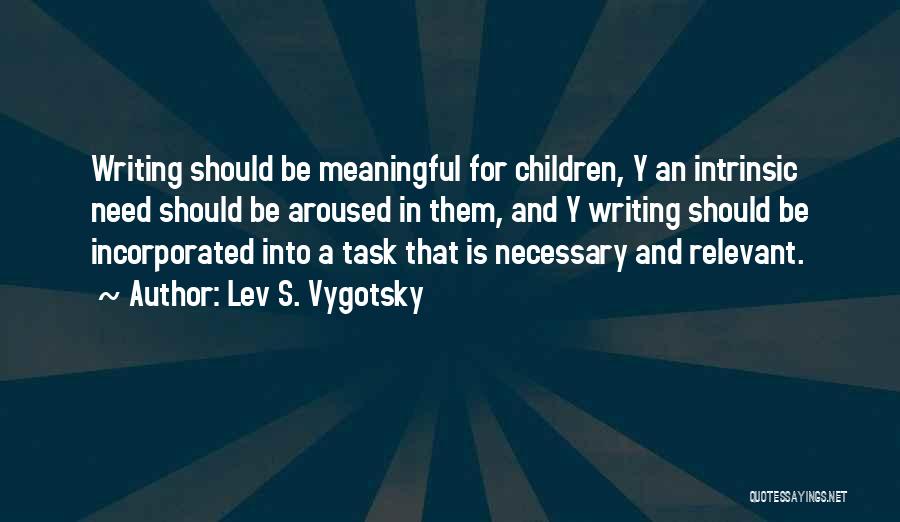
Writing should be meaningful for children, Y an intrinsic need should be aroused in them, and Y writing should be incorporated into a task that is necessary and relevant. — Lev S. Vygotsky
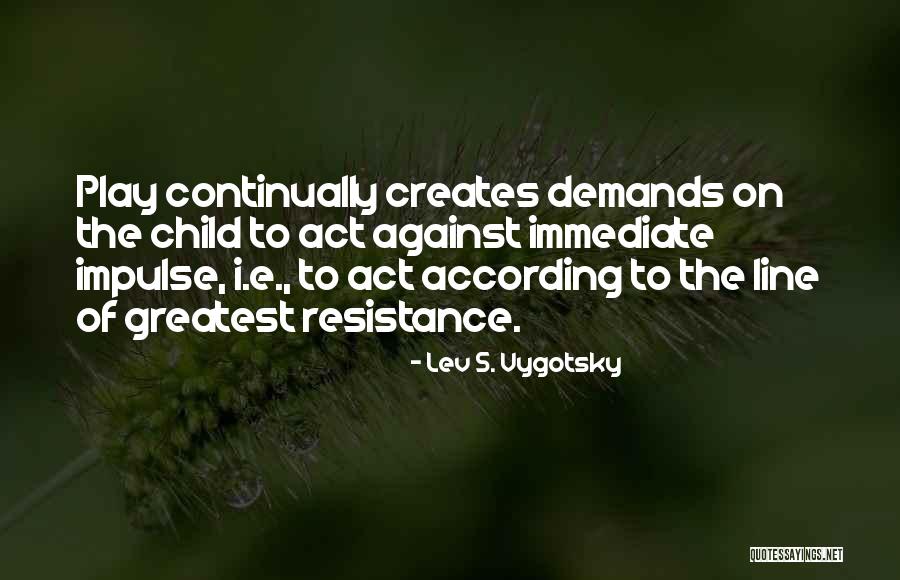
Play continually creates demands on the child to act against immediate impulse, i.e., to act according to the line of greatest resistance. — Lev S. Vygotsky
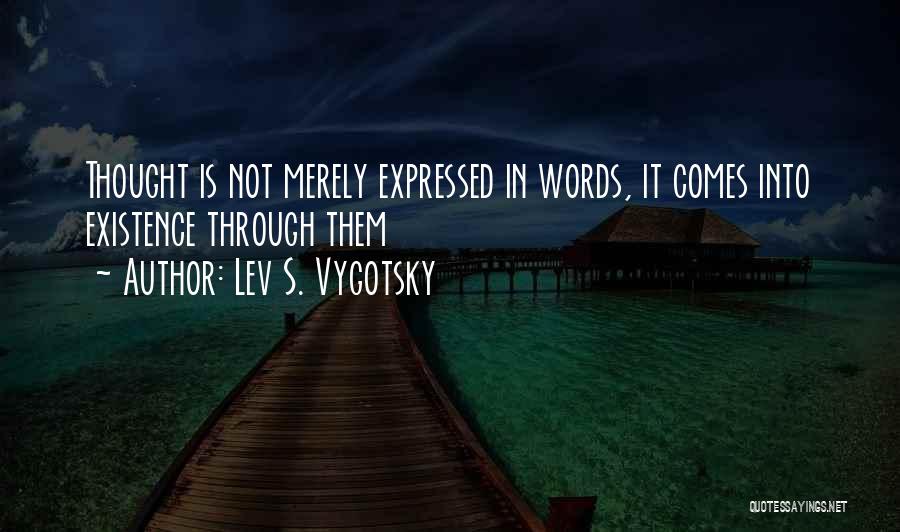
Thought is not merely expressed in words, it comes into existence through them — Lev S. Vygotsky
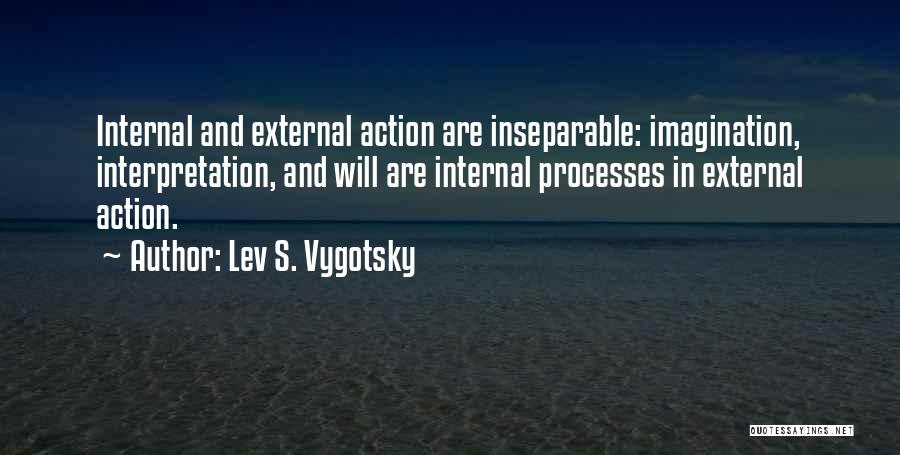
Internal and external action are inseparable: imagination, interpretation, and will are internal processes in external action. — Lev S. Vygotsky
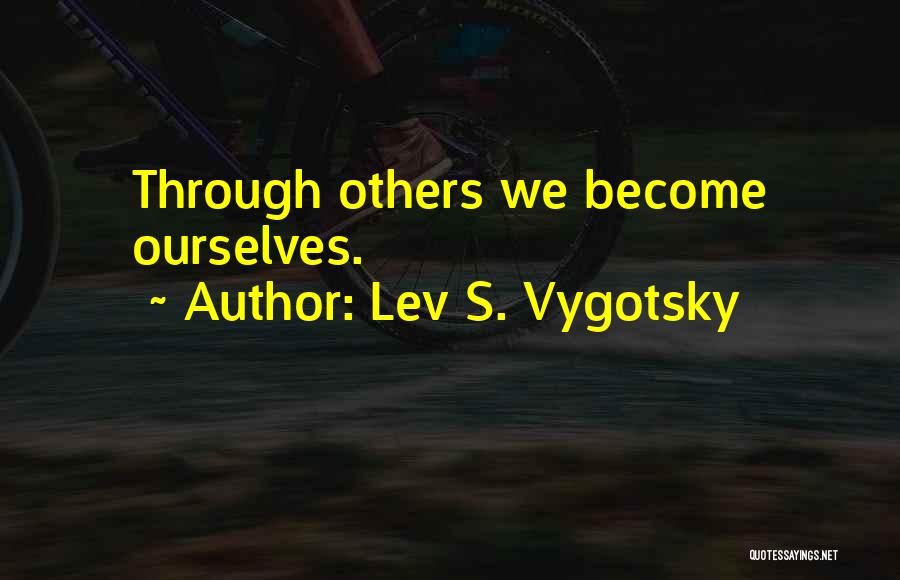
Through others we become ourselves. — Lev S. Vygotsky
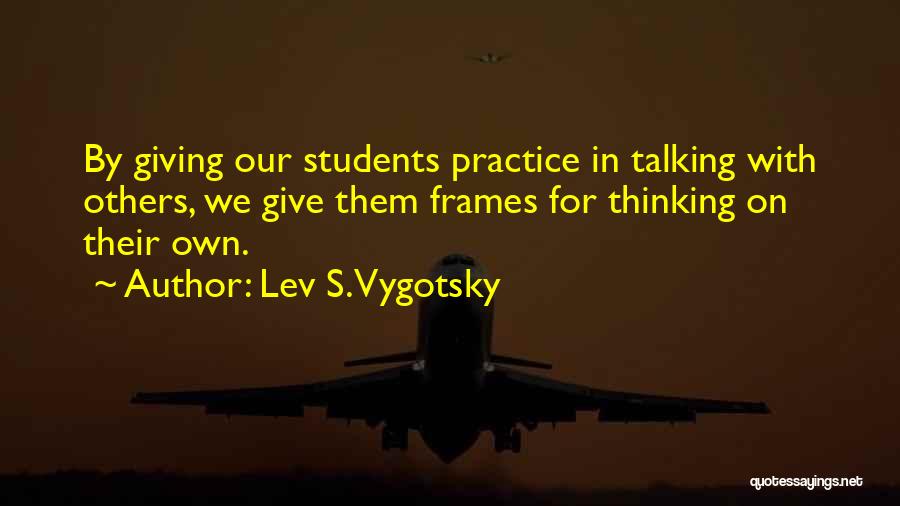
By giving our students practice in talking with others, we give them frames for thinking on their own. — Lev S. Vygotsky
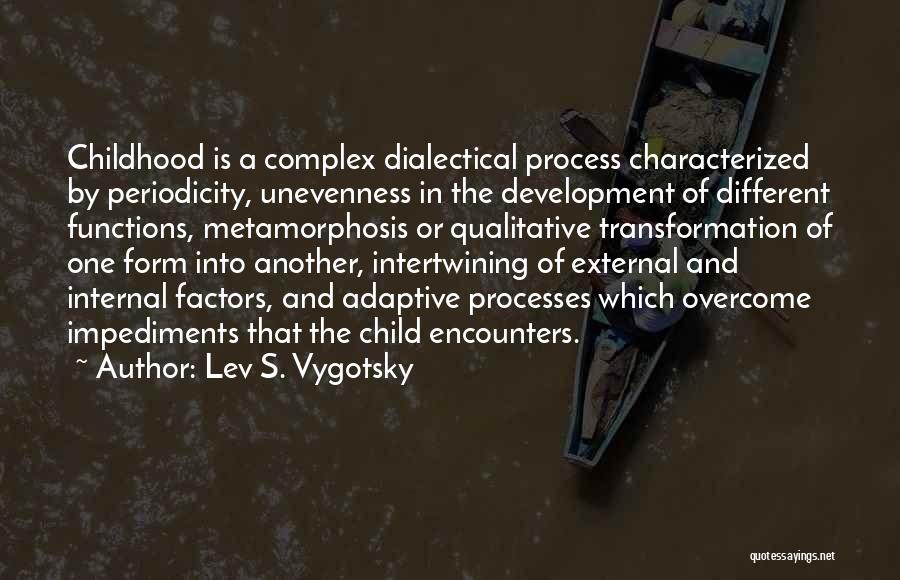
Childhood is a complex dialectical process characterized by periodicity, unevenness in the development of different functions, metamorphosis or qualitative transformation of one form into another, intertwining of external and internal factors, and adaptive processes which overcome impediments that the child encounters. — Lev S. Vygotsky
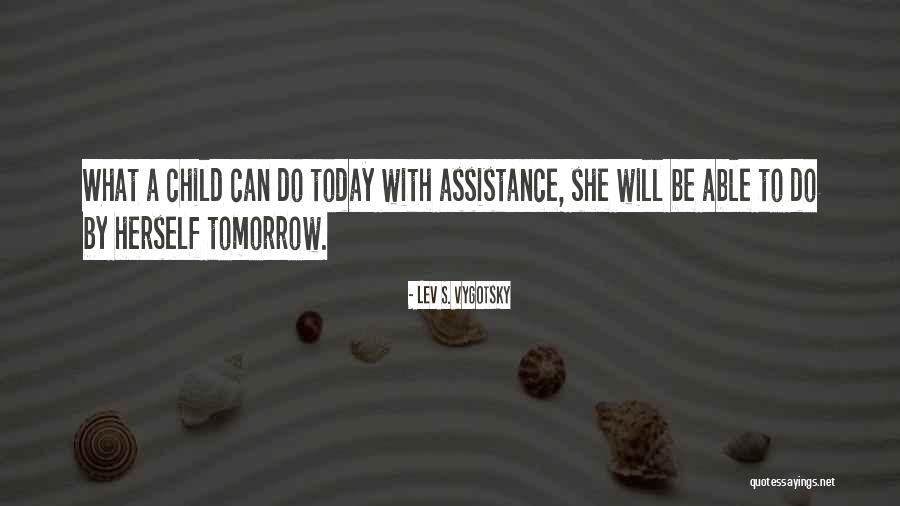
What a child can do today with assistance, she will be able to do by herself tomorrow. — Lev S. Vygotsky
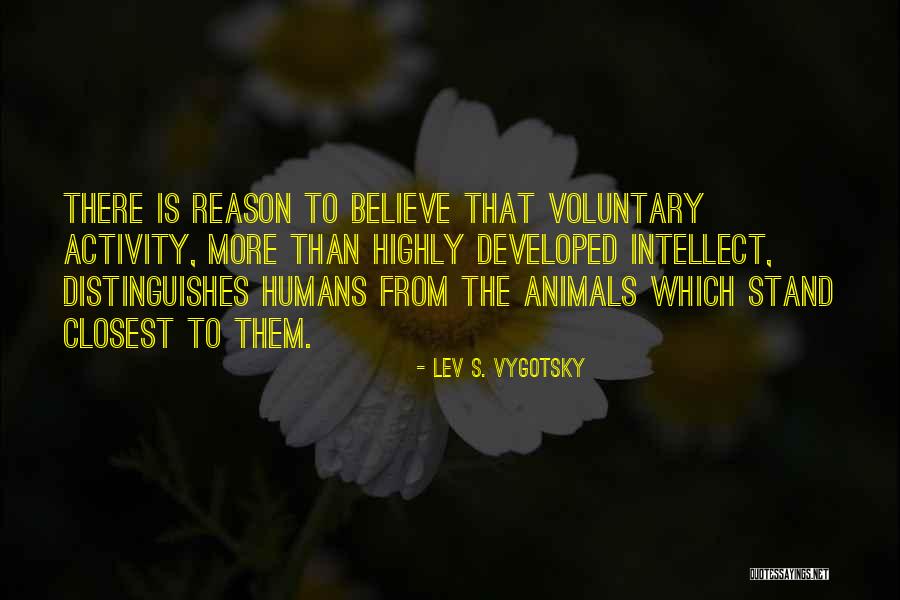
There is reason to believe that voluntary activity, more than highly developed intellect, distinguishes humans from the animals which stand closest to them. — Lev S. Vygotsky
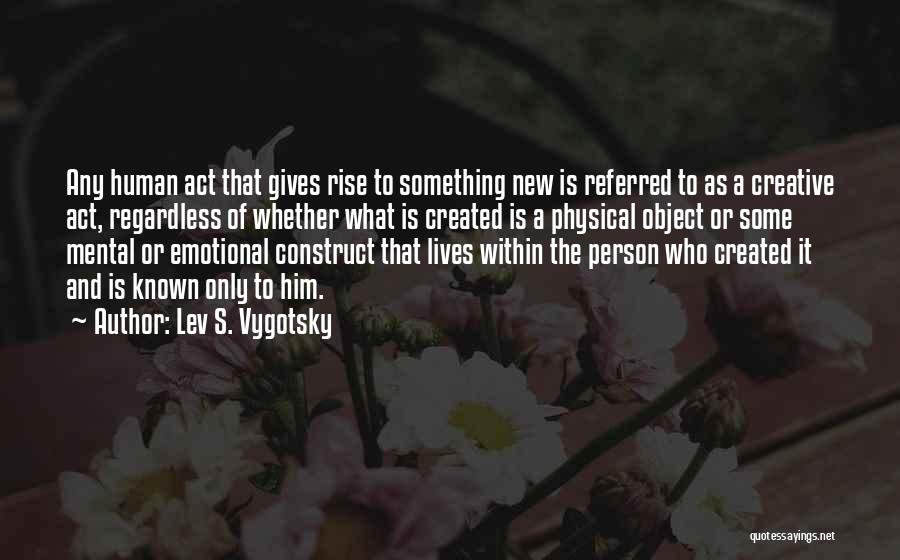
Any human act that gives rise to something new is referred to as a creative act, regardless of whether what is created is a physical object or some mental or emotional construct that lives within the person who created it and is known only to him. — Lev S. Vygotsky
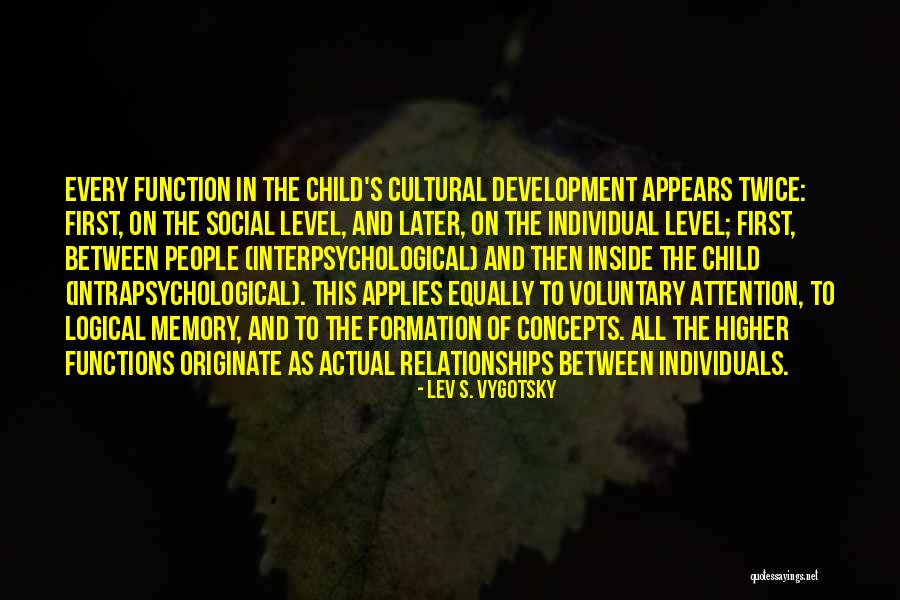
Every function in the child's cultural development appears twice: first, on the social level, and later, on the individual level; first, between people (interpsychological) and then inside the child (intrapsychological). This applies equally to voluntary attention, to logical memory, and to the formation of concepts. All the higher functions originate as actual relationships between individuals. — Lev S. Vygotsky
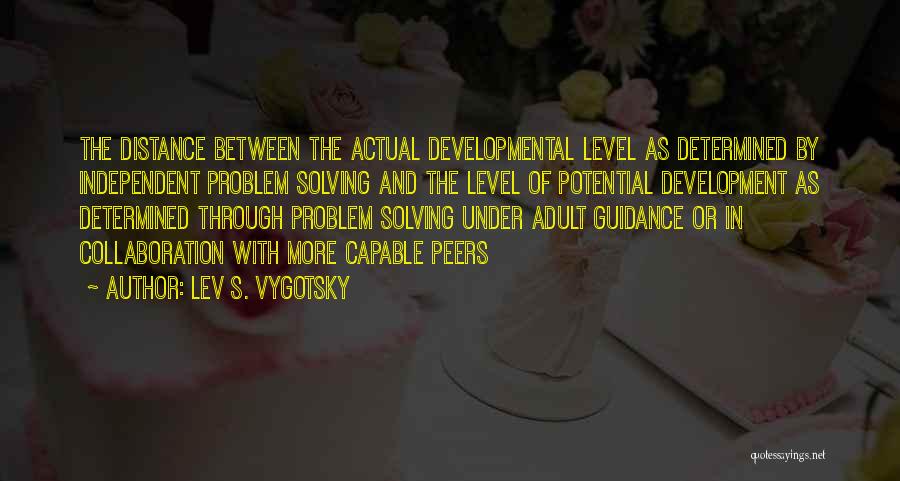
The distance between the actual developmental level as determined by independent problem solving and the level of potential development as determined through problem solving under adult guidance or in collaboration with more capable peers — Lev S. Vygotsky





